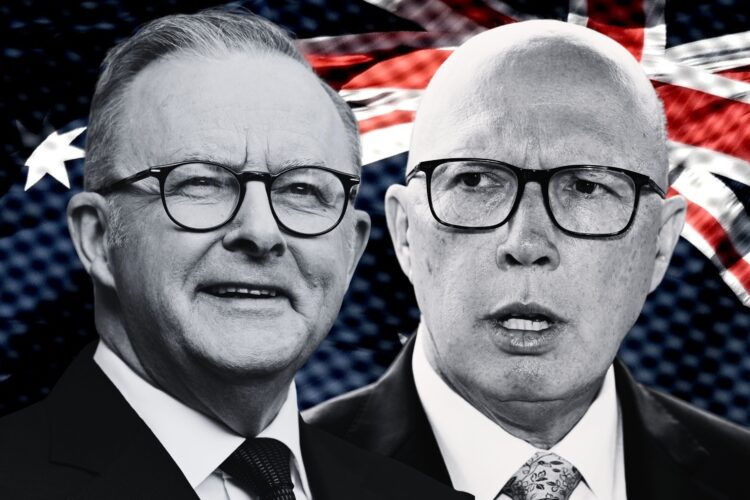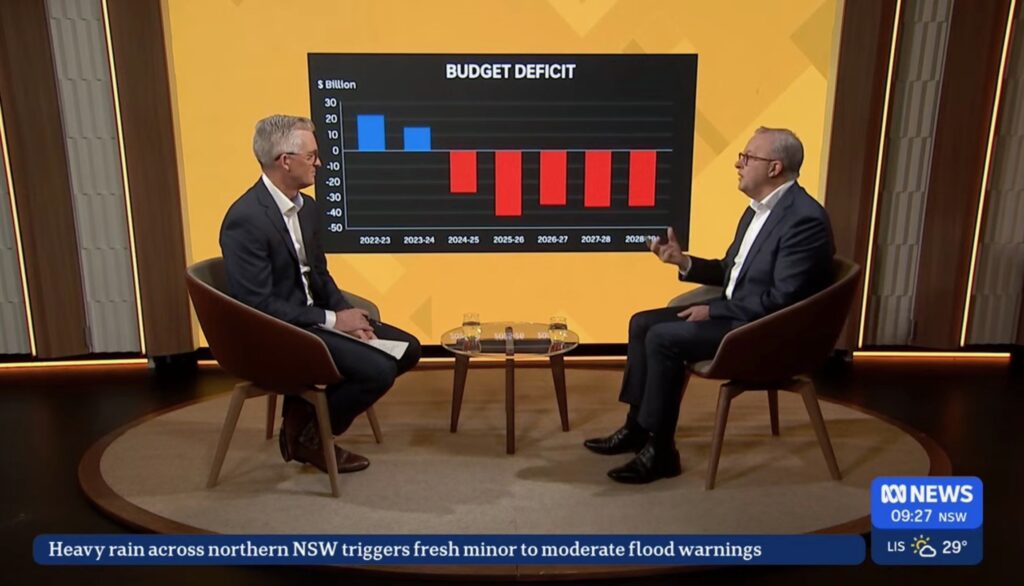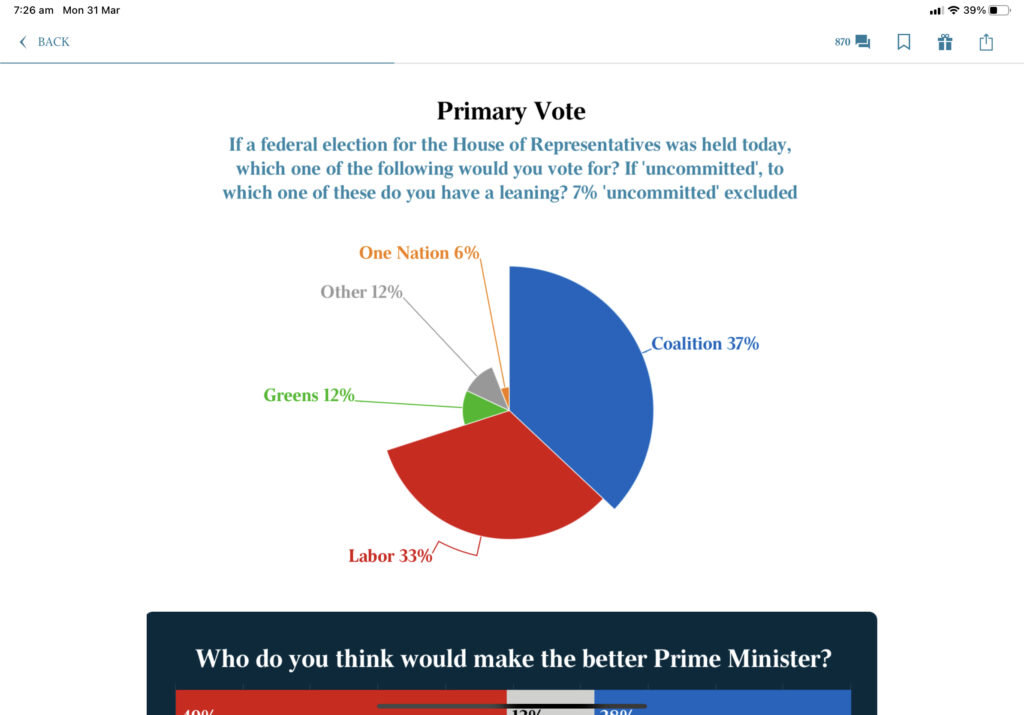Richard Marles also defended the announcement from the weekend that Labor would put together a supermarket price taskforce to stop price gouging. Marles is asked why didn’t the government act during the term, which is completely fair – it’s not as though this is new information.
Marles:
There are countries elsewhere in the world which have anti-price gouging legislation. That is what we are seeking to introduce here. That was the commitment we made – the Prime Minister made over the weekend. That is an important step forward. What it is saying is if you have got, for essential goods and services in a sector where there are companies with market power, price gouging in those circumstances will be made unlawful and that is the heart of the legislation you see elsewhere.
Marles is then asked about the ACCC report which found no evidence of price gouging.
It is important to note that the ACCC report also found:
While they are not necessarily the most profitable in a given year, regardless of the metric applied (EBIT, NPAT or return on capital), Coles and Woolworths are some of the most profitable supermarket businesses among their global peers. ALDI has indicated its Australian supermarkets business is at the higher end of profitability when compared with ALDI supermarkets trading in other countries
ALDI’s, Coles’ and Woolworths’ average product margins increased over the last 5 financial years, while Metcash banner stores’ average product margins were relatively flat. While input and operational costs have increased over this time, Coles and Woolworths have maintained or increased their product margins.
We have not sought to determine whether the prices or margins of ALDI, Coles, Metcash (or its banner stores) and Woolworths are excessive. Having or exercising market power, or charging high prices, or obtaining high margins, is not prohibited by the CCA. If there were a greater degree of competition between supermarkets, we would expect margins to be lower, either by way of lower retail prices, or higher costs incurred to improve quality of service, or both.
In our view it is important to consider all metrics and the information each provides before drawing conclusions. ALDI’s, Coles’ and Woolworths’ margins increased at all accounting levels in recent years. Therefore, we consider it reasonable to conclude increasing EBIT margins over this period suggest these supermarket businesses have not passed on the full benefit of any cost saving initiatives. Increasing product margins appear to have contributed to the increasing EBIT margins – even if ALDI, Coles and Woolworths have acted to moderate cost growth.



Loading form…